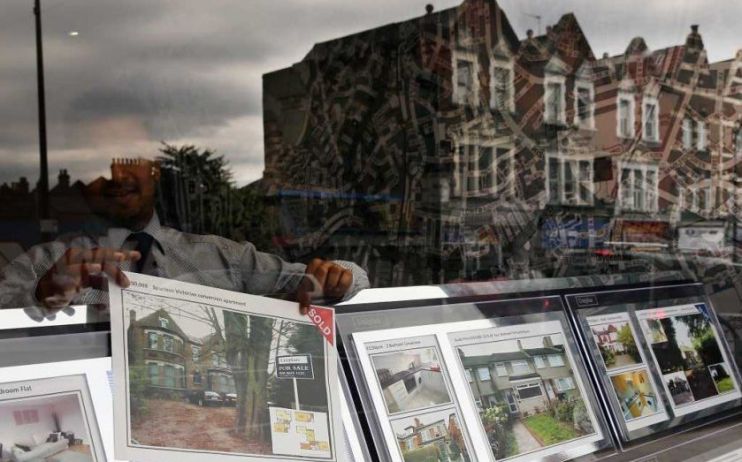Mortgage rates are going back UP – but where will they end up?

A number of mortgage lenders are raising their costs again in a move which will “bring further tears to the eyes of the general public”.
HSBC and Virgin Money are all increasing the cost of new deals this month. It follows a similar announcement by Santander and TSB and Coventry earlier in the week.
Just yesterday Natwest also announced further increases to most of its fixed rate mortgage deals.
Gary Bush, financial adviser at MortgageShop.com, said: “To hear of yet another large high street lender, in this case Natwest, increasing its mortgage rates will bring further tears to the eyes of the general public whose household budgets are already stretched to the max.”
The average two-year fixed residential mortgage rate today is 5.74 per cent, according to a reading from Moneyfacts data, this is up from an average rate of 5.72 per cent on the previous working day.
An average five-year fixed mortgage rate followed a similar trend up, slightly to 5.31 per cent from 5.30 per cent the day before.
Myron Jobson, senior personal finance analyst at interactive investor, said: “The mortgage price war has abated in recent weeks, with a number of lenders going the other way and upping rates as hopes for an imminent cut to the Bank of England base rate wane.
“Swap rates — a key benchmark for pricing fixed-rate mortgages — have edged higher in recent weeks following a tempering of optimism for the outlook of the UK economy. This, in tandem with a need to loosen tight margins, is likely behind the recent trend.
He added: “However, borrowers needn’t panic as the current economic signals suggest that rate reductions are likely to remain the prevailing trend across the year.”
Where will mortgage rates end up?
Towards the end of last year, home loan prices shot down as dozens Uk lenders offered better deals to battle for business in a market shrunk by economic turmoil.
This move improved the outlook in the UK’s property market which was battling a slowdown in sales as buyers struggled with affordability.
It was recently revealed the UK slipped into a technical recession in the last quarter of 2023.
This challenging economic condition has driven up swap rates in recent weeks, which lenders use to price their mortgage deals.
Russ Mould, investment director at AJ Bell, said: “Swap rates have been edging higher as markets grappled with mixed economic data and big questions about what the chancellor might pull out of his box on Budget day.
“That’s pushed lenders like HSBC to announce that mortgage costs will rise, which will be tough news to swallow for all those homeowners whose ultra-low fixed rates are due for renewal in the next few weeks.
“Uncertainty has created volatility and without a clear path to pivot things are likely to remain painful for a little while yet.”